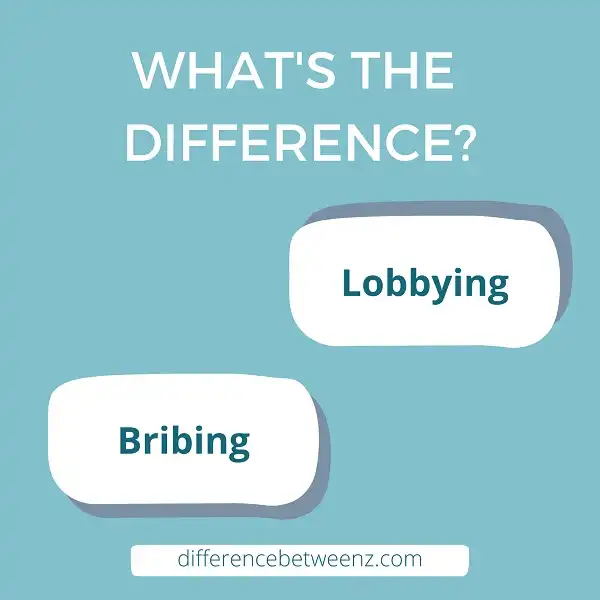In order to understand the difference between lobbying and bribing, it is important to first understand what each term means. Lobbying refers to the act of attempting to influence public officials or legislators on behalf of particular interest. Bribing, on the other hand, refers to the offeror’s receipt of something of value with the intent to improperly influence a person’s official behavior. While there may be some overlap between lobbying and bribery, there are key distinctions between the two activities.
What is Lobbying?
Lobbying refers to the process of trying to influence a politician or a government official in order to bring about the desired change. This can be done through direct communication, such as meeting with the politician or official, or indirect means, such as writing letters or organizing protests. Lobbying is often carried out by special interest groups, who try to convince politicians to support their cause. Lobbying can be a very effective way of bringing about change, but it can also be seen as a controversial practice. Some people argue that it allows rich and powerful interests to exert too much influence over the political process. Others argue that it is a legitimate form of free speech and an important part of democracy. Lobbying will continue to be a controversial issue in the years to come.
What is Bribing?
Bribing is the act of promising or giving money or goods to another person in order to influence their actions. Bribing can be done for many reasons, such as obtaining information or granting favors. It is important to note that bribery is different from corruption, which is the use of power or influence for personal gain. While bribery may occasionally lead to corrupt practices, the two terms are not interchangeable. Bribing is considered illegal in many countries and can result in severe penalties, including imprisonment. In some cases, it may also be considered a form of fraud. As such, it is important to familiarise yourself with the laws in your country before engaging in any activities that could be considered bribery.
Difference between Lobbying and Bribing
Lobbying and bribing are two terms that are often used interchangeably, but there is a big difference between the two. Lobbying is the legal process of trying to influence government decision-makers in order to promote a certain agenda. This can be done by making speeches, writing letters, or meeting with legislators. Bribing, on the other hand, is the illegal act of offering money or gifts in order to influence a government official. Lobbying is a legitimate way to attempt to influence public policy while bribing is a crime that can lead to jail time.
Conclusion
While there may be some gray areas, it is important to understand the distinction between lobbying and bribery. When done ethically and within the bounds of the law, lobbying can be an effective way for businesses to get their voices heard. However, when bribes are offered or accepted, it can not only damage a company’s reputation but also lead to legal troubles. It is crucial for business owners to stay informed about the laws surrounding lobbying and bribery in order to protect themselves and their businesses.


